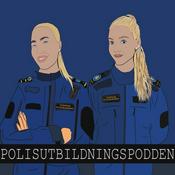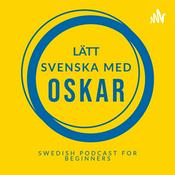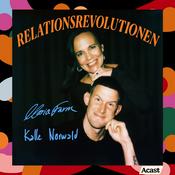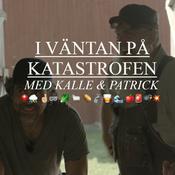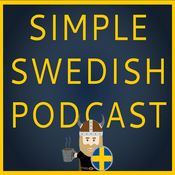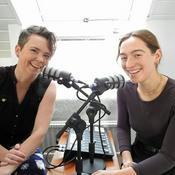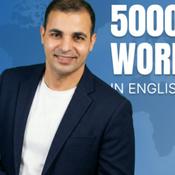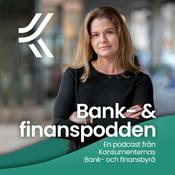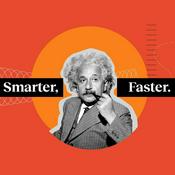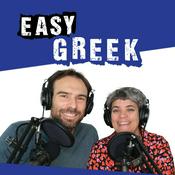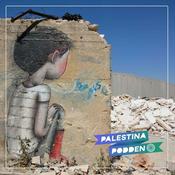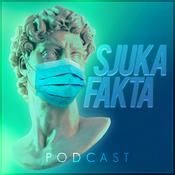18 avsnitt

Grace and Tolerance in History: Toussaint
2025-12-17 | 1 h 15 min.
The Haitian Revolution was the most radical and unlikely uprising in the modern world. In this episode, Dr. Roy Casagranda traces the rise of Toussaint Louverture and the extraordinary transformation of Saint-Domingue from the richest slave colony on earth to a revolutionary force that challenged Europe’s greatest empires. Dr. Roy explores the brutality of the slave system, the brilliance of Toussaint’s leadership, and the imperial betrayals that shaped Haiti’s future.Takeaways:The Haitian Revolution emerged from one of the most brutal slave systems ever created, driven by European greed and racial hierarchy.The colony of Saint-Domingue became immensely profitable through the exploitation of enslaved Africans, creating rigid class divisions among whites, free Blacks, mixed-race populations, and enslaved people.Toussaint Louverture demonstrated extraordinary leadership defined by discipline, mercy, forgiveness, and long-term economic vision.Toussaint consistently protected even former oppressors, believing stability required reconciliation rather than vengeance.His decision to maintain plantations (without slavery) was an attempt to preserve economic viability and prevent imperial retaliation.Napoleon’s racism, insecurity, and desire to restore slavery led to catastrophic betrayal, invasion, and genocide.Haiti’s later struggles stem partly from France’s punitive actions, leadership fragmentation, and global isolation driven by fear of slave uprisings.The Haitian Revolution remains one of history’s most extraordinary acts of liberation and one of its most sabotaged.References & Resources:The Haitian Declaration of IndependenceThe Code NoirThe French Revolution: The Declaration of the Rights of Man and of the CitizenTreaty of RyswickBeyond the podcast: Want to watch this lecture? Check out the full video.Want to support the show? Buy Dr. Roy a coffee!This lecture was originally recorded at the Museum of the Future for the series Lessons from the Past (2025).

The Islamic Golden Age
2025-12-10 | 57 min.
Most histories of the Islamic Golden Age focus on its discoveries. But in this episode, Dr. Roy goes further back, tracing the long arc of Western civilization from ancient Egypt and Mesopotamia to Greece, Rome, Persia, and the rise of Islam. He reveals how one Persian emperor’s decision to build a library, one Arab army’s humility in conquest, and one political revolution in Baghdad created the perfect conditions for philosophy, science, medicine, and mathematics to flourish. This episode reframes the Golden Age as a broader human achievement, shaped by cultural tolerance, intellectual curiosity, and the preservation of ancient knowledge. Takeaways:How early Egyptian and Mesopotamian innovations shaped the first age of Western civilization.Why Rome’s destruction of the Great Library and suppression of philosophy created a centuries-long intellectual vacuum.The astonishing story of Emperor Shapur I, the captured Roman legions, and the founding of Gunde-Shapur.How Greek, Roman, Persian, Egyptian, Indian, and Chinese knowledge all converged in one extraordinary place.Why the Arab conquest of Persia succeeded without destroying its intellectual legacy.How the Abbasid Revolution shifted the empire’s cultural center of gravity toward Persian traditions of scholarship.The creation of Baghdad’s House of Wisdom and its role in reviving Aristotle, Plato, and scientific inquiry.The breakthroughs of scholars like Al-Kindi, Al-Khwarizmi, Ibn al-Haytham, and Ibn Sina across mathematics, optics, medicine, and astronomy.How the Islamic Golden Age indirectly triggered the European Renaissance through Sicily, Venice, and Spain.Why the future of civilization hinges on curiosity, tolerance, and our willingness to learn from the past. Resources & References:The Great Library of AlexandriaThe Code of HammurabiThe Book of OpticsThe Canon of MedicineBeyond the podcast: Want to watch this lecture? Check out the full video.Want to support the show? Buy Dr. Roy a coffee!This lecture was originally recorded at the Museum of the Future for the series Lessons from the Past (2025).

Deconstructing Racism and Sexism in the Envisagement of Western Civilization
2025-12-03 | 1 h 46 min.
Racism and sexism didn’t emerge naturally or accidentally. In this episode, Dr. Roy explains how Western societies constructed rigid hierarchies of gender and race, often in contrast to more egalitarian cultures in the ancient world. He examines how Greek philosophers like Aristotle shaped Western ideas about rationality and superiority, how the Roman Empire institutionalised patriarchy, how Christianity encoded obedience into gender norms, and how modern nationalism fused racism into the fabric of political identity. This lecture offers a clear historical roadmap showing how present-day discrimination evolved over thousands of years.Takeaways:How ancient Mesopotamian and Egyptian societies often included women as leaders, property owners, and warriors.Why ancient Greece marked a dramatic shift toward rigid patriarchy and exclusion of women from public life.How Aristotle’s ideas on rationality, “natural slaves,” and female inferiority shaped centuries of Western thought.The Roman Empire’s adoption of Greek patriarchal norms and the legal structures that cemented male dominance.How early Christianity fused obedience, hierarchy, and gender roles into doctrine and social life.Why Western Europe associated whiteness with purity and superiority, laying the groundwork for racial hierarchy.How the Enlightenment, despite its ideals, linked reason with whiteness and expanded scientific racism.The role of nationalism in transforming racism from a prejudice into a political identity.How sexism and racism were essential tools for controlling labor, land, and social order across empires.Why understanding these origins is essential for dismantling the systems still shaping inequality today.Resources & ReferencesThe Code of HammurabiThe Book of the DeadThe PoliticsThe RepublicThe Allegory of the CavePaul’s LettersBeyond the podcast: Want to watch this lecture? Check out the full video.Want to support the show? Buy Dr. Roy a coffee!

Masculinity
2025-11-19 | 1 h 57 min.
What does it mean to be a man? Dr. Roy takes listeners on a journey from the evolution of early humans to the social expectations placed on men today. Along the way, he explains how sexual reproduction shaped our species, why diverse personalities are essential, and how patriarchal systems emerged from warfare and historical accident, not biological destiny. He contrasts ancient egalitarian societies with patriarchal civilizations like Greece and Rome, highlights the intelligence and emotional depth of animals like killer whales and elephants, and debunks ideas like “alpha males” and the myth of male rationality versus female emotion. This episode reframes masculinity as compassion, stewardship, and community strength rather than dominance or suppression.Takeaways:Why sexual reproduction evolved and how genetic diversity shaped human personalities and community survival.How the biology of pregnancy, birth, and menopause reveals the evolutionary importance of women as educators and wisdom-keepers.Why humans evolved pair bonding and how bipedalism and big brains influenced gender dynamics.The emotional and cognitive roles of the rational mind versus the subconscious mind.How patriarchal societies emerged through warfare rather than natural biological hierarchy.Examples of matrilineal and matrilocal societies, including the Apache and the Ura Sioux, that challenge modern assumptions about gender roles.Why many ancient societies, including parts of Egypt and Persia, embraced women warriors and rulers.The distortion of love and emotional intelligence in Western philosophy from Plato, Aristotle, and later thinkers.The myth of the “alpha male” and how wolf research reveals a radically different model of leadership based on care, not dominance.How kindness, compassion, and community uplift—not aggression—are the truest expressions of human strength.Resources & ReferencesThe Discovery of DNARosalind Franklin and DNA ImagingThe Antikythera MechanismThinking, Fast and SlowBeyond the podcast: Want to watch this lecture? Check out the full video.Want to support the show? Buy Dr. Roy a coffee!

The Arab Spring and Its Long Shadow
2025-11-12 | 1 h 47 min.
Note: This is a visual-heavy episode. You can watch the lecture here.The Arab Spring began in December 2010 when Tunisian street vendor Mohamed Bouazizi’s desperate protest against corruption sparked uprisings that swept across North Africa and the Middle East. Dr. Roy explores how these revolts evolved from Egypt’s mass protests to Syria’s devastating civil war, and why many of the revolutions failed to produce lasting democracy. Blending historical context, firsthand experience, and deep analysis, Dr. Roy examines how colonial borders, foreign interference, economic despair, and authoritarian endurance all contributed to the Arab Spring’s rise and collapse.Takeaways:How the Arab world’s diversity, language, and shared identity connect back to ancient civilizations, often written out of Western history.Why the fall of the Ottoman Empire and European imperialism set the foundation for modern unrest.How Egypt’s revolutionary history shaped the 2011 uprising and why the country’s workers, youth, and “Ultras” became key forces of change.The role of digital media and grassroots organizations in spreading revolt, and why the “Facebook Revolution” narrative oversimplified the truth.The rise and fall of Egypt’s short-lived democracy under Hosni Mubarak, Mohamed Morsi, and Abdel Fattah el-Sisi.How the Arab Spring spread beyond the Arab world to Europe, Asia, and the United States through movements like Occupy Wall Street.The collapse of Libya, Yemen, and Syria, and how global powers, including the U.S. and Russia, deepened regional chaos.Why Tunisia stands as the lone partial success story and what its fragile democracy reveals about the long shadow of revolution.Resources & References: The Sykes-Picot Agreement The Egyptian Constitution of 1956Tunisia: Mohamed Bouazizi and the Jasmine RevolutionThe Six-Day War The Green Movement in Iran The United Arab Republic The Syrian Civil War and the Fall of AleppoOccupy Wall Street Manifesto Beyond the podcast: Want to watch this lecture? Check out the full video.Want to support the show? Buy Dr. Roy a coffee!
Fler podcasts i Utbildning
Trendiga poddar i Utbildning
Om Dr. Roy Casagranda Podcast
Lyssna på Dr. Roy Casagranda Podcast, Polisutbildningspodden och många andra poddar från världens alla hörn med radio.se-appen

Hämta den kostnadsfria radio.se-appen
- Bokmärk stationer och podcasts
- Strömma via Wi-Fi eller Bluetooth
- Stödjer Carplay & Android Auto
- Många andra appfunktioner
Hämta den kostnadsfria radio.se-appen
- Bokmärk stationer och podcasts
- Strömma via Wi-Fi eller Bluetooth
- Stödjer Carplay & Android Auto
- Många andra appfunktioner


Dr. Roy Casagranda Podcast
ladda ner appen,
börja lyssna.
